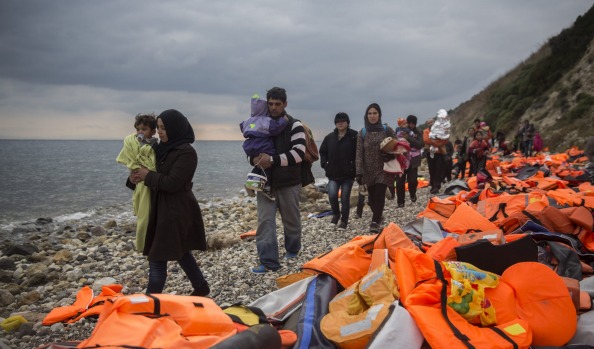-
Tips for becoming a good boxer - November 6, 2020
-
7 expert tips for making your hens night a memorable one - November 6, 2020
-
5 reasons to host your Christmas party on a cruise boat - November 6, 2020
-
What to do when you’re charged with a crime - November 6, 2020
-
Should you get one or multiple dogs? Here’s all you need to know - November 3, 2020
-
A Guide: How to Build Your Very Own Magic Mirror - February 14, 2019
-
Our Top Inspirational Baseball Stars - November 24, 2018
-
Five Tech Tools That Will Help You Turn Your Blog into a Business - November 24, 2018
-
How to Indulge on Vacation without Expanding Your Waist - November 9, 2018
-
5 Strategies for Businesses to Appeal to Today’s Increasingly Mobile-Crazed Customers - November 9, 2018
European Union plans new border guard to stem migration
The report also highlighted that only two out of 11 so-called hotspots for the processing of refugees were operational, while only around 200 refugees from Greece and Italy had been relocated to other countries out of 160,000 planned by the EU. The migration crisis has drive a wedge among member states that many fear threatens the overall unity of the 28-nation bloc.
Advertisement
However, frustration among northern powers, including France and Germany, at failures by Greece and Italy to document and screen masses of people arriving by boat from Turkey and Africa has driven demands for more centralized European control of the Schengen zone’s external frontiers.
European Union vice-president Frans Timmermans and European Union migration commissioner Dimitris Avramopoulos said the proposal would not strip member states of sovereign rights.
The pressure to tighten frontier checks has increased following the November 13 attacks in Paris.
The executive European Commission also wants the power to deploy EU forces without the consent of the member state concerned – an idea that has already hit resistance in national capitals and which many see as impractical.
The new agency would have a reserve pool of 1,500 border guards, which can be dispatched in a matter of days to an external border to prevent a crisis from escalating.
The deployment on the Greek islands near Turkey would boost the number of land and sea patrols, meaning more migrants would be identified and properly registered, a Frontex statement said. The new agency will also be responsible for expelling people who do not qualify for asylum in Europe.
Merkel said the European Commission would present a report on the resettlement plan at the next EU summit.
European Union leaders are expected to discuss the proposal at their two-day meeting that starts in Brussels on Thursday.
Below are the main points of the proposal from the European Commission. Staffing to double from some 400 at EU’s border agency now to 1,000 by 2020.
Under the EU-Turkey deal, EU leaders pledged three billion euros ($3.2 billion) in aid to help improve the conditions of the at least 2.2 million refugees now on Turkish soil from the Syrian war.
Bohuslav Sobotka says his country has been calling for measures to fix poor management of the external borders for a while and “we are ready to support such a proposal”.
The historical quantities of families fleeing war and poverty for the safer environs of the European Union has recently set the regime of borderless journey between the majority of its own member states of the EU under danger.
Advertisement
The plan is contentious because it requires countries to surrender some of their sovereignty – something many have viscerally opposed so far – and it is unclear whether the scheme will win enough backing.





























